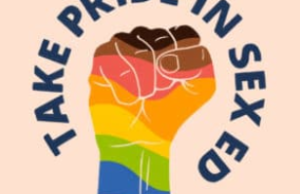Equal Right for All: Bill will ensure fairness for GLBT community
By Kellie Petersen 2009
When most Iowa citizens apply for a job, rent an apartment or even eat at a local restaurant, they do not have to be concerned with being discriminated against. They are allowed this freedom from concern because of the Iowa Civil Rights Act, which currently prohibits discrimination based on race, creed, color, sex, national origin, religion, ancestry or disability.
Unfortunately, sexual orientation and gender identity are not included, so Iowa’s Gay Lesbian Bisexual Transgender (GLBT) citizens are denied the basic right of protection from discrimination.
That soon may change, thanks to Senate File 427, a bill that would add sexual orientation and gender identity to Iowa’s Civil Rights Act Senate File 427 would ensure protection from discrimination in areas such as employment, housing, education, credit and pubic accommodations and services. The bill, introduced by Senator Mike Gronstal, was deferred last Wednesday, March 21, but was again brought up for consideration starting Monday, March 26.
There may be negative opinions regarding this bill, but there are a lot of positive opinions and support as well.
“I’m strongly in favor because given that the current civil rights code in Iowa is already enumerated, adding sexual orientation just makes the policy more complete,” junior and GSA member Briana McGeough said.
McGeough’s comment does seem logical. All of a state’s citizens should be protected equally under the law, regardless of how controversial their “lifestyle choices” may be. It is also the responsibility of Iowa’s legislatures to carry out this protection in the form of laws such as Senate File 427. Hopefully, this responsibility will be something that they will keep in mind before making a decision that will greatly impact the lives of Iowa’s GLBT citizens.
“I think that there is a much better chance of it passing now than it has ever had. We have just seen the anti-bullying legislation go through that included GLBT students and faculty. This gives me hope that more and more people are coming to terms with the fact that we are a nation that prides itself on its liberty and not on discrimination,” CFHS world language teacher and GSA faculty advisor Melissa Breddin said.
Although the bill has a decent chance of being approved, it still has its fair share of opposition. One of the most common points that is made against adding sexual orientation and gender identity to the Iowa Civil Rights Act is that it unnecessarily classifies the group of people that it would concern, or that it would entitle them to “special” rights.
“I believe in equal rights—and equal rights are not special rights—and this is just one more area where the principle is failing to be upheld,” senior GSA member Rachel Jensen said.
When you really think about it, protecting people because of their sexual orientation or gender identity isn’t any different than protecting them because of their race, religion or any of the other distinctions that are already protected from discrimination. And when has the right to be protected from discrimination because of who you are been a “special” right?
All are entitled to their own opinions regarding homosexuality and transgender issues, but that doesn’t mean they have to right to deny a certain group of people protection under the law because of their personal opinions.
“This bill does not force anyone to change their beliefs, it only requires them to not discriminate against GLBT people in areas such as work and housing,” Breddin said.
Often the excuse is made that GLBT people do not deserve the protections that bills like Senate File 427 would ensure because they have chosen their lifestyle, but isn’t religion also a choice since individuals can choose to change their religion at any time if they wish, and religion is certainly protected from discrimination.
Regardless of any opposition that adding sexual orientation and gender identity to the Iowa Civil Rights Act may face, its supporters are still optimistic about the benefits the bill would have, including benefits to the state as a whole.
Regarding whether adding sexual orientation and gender identity would be beneficial, junior GSA member Michelle Bamber said, “Absolutely, when people have their rights, things can only go up.”
For example, Iowa prides itself on being a welcoming and safe place for all people, but when the state legislature and citizens do not support a bill to protect Iowa citizens, they are sending a contradictory message.
“I feel that laws reflect the attitudes of the people; the more fair and open the laws are, the more fair and open the people are,” McGeough said.
Not only would including sexual orientation and gender identity prove that Iowa is an open and welcoming place, but it would also show how progressive the state is.
“It’s nice to see something actually being done to benefit Iowa’s citizens and make progress,” senior GSA member Thea Moe said.
Although this bill has the potential to benefit Iowa and all of its citizens, the impact that it would have on the GLBT people of the state is indisputably the greatest. Finally, they would be free from all forms of discrimination while at work and in public, when buying or renting a home, applying for a credit card and in countless other situations.
“I think any man who has been evicted from his apartment for bringing his boyfriend home with him or any woman that got fired for openly declaring her partnership with another woman would tell you that this is a major significance,” Jensen said.
The significance of this bill is something that supporters are willing to fight for. Many supporters have in fact taken an active part in this fight by attempting to influence their legislators, like Bamber, Jensen and McGeough chose to do when they lobbied for the bill over spring break.
“I chose to lobby because right now I’m too young to vote, so this is one of the few ways to have a voice in government policy,” McGeough said.
Hopefully, the legislators will make the right choice and approve this bill, but if they don’t, Bamber, Breddin, Jensen, McGeough and Moe all agreed that it would not put an end to their actions; they would just keep going until their goal is reached.
“If it fails, we just need to keep trying and keep educating. GLBT people are not going to disappear. This fight will go on to until all people in this country are respected and protected,” Breddin said.









You must be logged in to post a comment Login